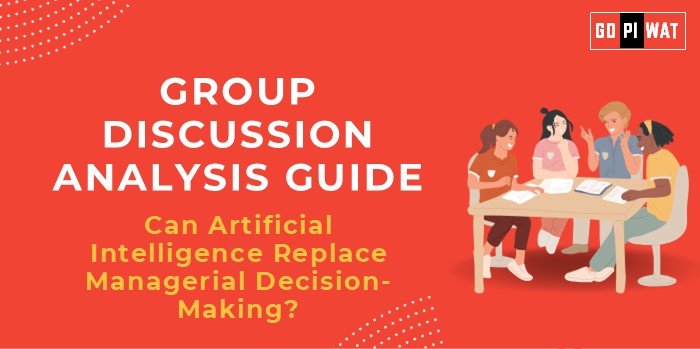📋 Can Artificial Intelligence Replace Managerial Decision-Making?
🌐 Introduction to the Topic
Opening Context: “Artificial Intelligence (AI) is redefining industries worldwide, but can it take over the nuanced and complex world of managerial decision-making?”
Topic Background: AI’s rapid evolution, fueled by advancements in machine learning and big data analytics, has brought debates about its potential to replicate or even surpass human judgment in management. The implications span efficiency, bias elimination, and economic transformation.
📊 Quick Facts and Key Statistics
- 💰 Global AI Spending: $154 billion in 2023, projected to reach $300 billion by 2026. (Source: IDC)
- 🤖 AI-Driven Decisions: 77% of companies are using AI to support decision-making processes. (Source: PwC)
- 📉 Human Error in Decision-Making: Costs businesses globally $37 billion annually. (Source: Gartner)
- ⚙️ Managerial Tasks Automatable by AI: Estimated at 40%. (Source: McKinsey Global Institute)
👥 Stakeholders and Their Roles
- 🏢 Corporate Leaders: Evaluate AI implementation for cost and efficiency gains.
- 💻 Technology Providers: Develop AI tools that support or replace human decision-making.
- 👩💼 Employees: Adapt to AI-driven workflows while safeguarding their roles.
- 🏛️ Policymakers: Set regulations for ethical AI usage in decision-making.
🏆 Achievements and Challenges
🌟 Achievements:
- 📊 Enhanced Efficiency: Real-time data analysis improves supply chain decisions.
- ⚖️ Bias Reduction: Reduces biases in repetitive tasks like recruitment.
- 📈 Improved Accuracy: Predictive algorithms enhance financial forecasting.
⚠️ Challenges:
- 🧠 Lack of Human Intuition: AI systems struggle with emotional intelligence.
- 📊 Over-Reliance on Data: May amplify pre-existing biases in datasets.
- 🔒 Ethical and Privacy Concerns: Particularly in HR and healthcare.
🌍 Global Comparisons:
- 🇺🇸 USA: Amazon uses AI extensively in inventory and logistics decisions.
- 🇯🇵 Japan: Toyota integrates AI in manufacturing but combines it with human oversight for creativity.
📖 Case Studies:
- 🇮🇳 India: Infosys employs AI in project management, leading to a 20% efficiency boost.
- 🇨🇳 China: Baidu leverages AI in marketing decisions, reducing campaign costs by 15%.
🗨️ Structured Arguments for Discussion
- ✔️ Supporting Stance: “AI’s ability to process vast datasets ensures faster, more objective decision-making.”
- ❌ Opposing Stance: “AI lacks the creativity and empathy necessary for high-stakes management decisions.”
- ⚖️ Balanced Perspective: “While AI augments decision-making with precision, human oversight is essential for context-sensitive scenarios.”
💡 Effective Discussion Approaches
- 📊 Opening Approaches:
- Use compelling statistics: “With 40% of managerial tasks automatable, how do we ensure managers remain indispensable?”
- Scenario-based: “Imagine an AI making life-and-death healthcare decisions—should there be a human involved?”
- 🛡️ Counter-Argument Handling:Acknowledge limitations like AI’s rigidity and present complementary solutions, e.g., combining AI with managerial expertise.
📈 Strategic Analysis of Strengths and Weaknesses
✅ Strengths:
- 📊 Data-driven decisions
- 📈 Scalability
- ⚙️ Efficiency
❌ Weaknesses:
- 🧠 Lack of intuition
- 📊 Over-reliance on data quality
🌟 Opportunities:
- 🤝 AI-human collaboration in hybrid decision models
⚠️ Threats:
- 🔒 Ethical dilemmas
- 💼 Job displacement
- 📉 Cybersecurity risks
🎓 Connecting with B-School Applications
- 📂 Real-World Applications:
- Finance: AI in risk assessment.
- Marketing: Customer segmentation through AI analytics.
- 💬 Sample Interview Questions:
- “How would you balance AI-driven insights with human intuition in business management?”
- “Discuss a scenario where AI-led decision-making might fail.”
- 📚 Insights for B-School Students:
- Study AI ethics frameworks for future managerial roles.
- Learn how to interpret AI-driven analytics for business strategy.


